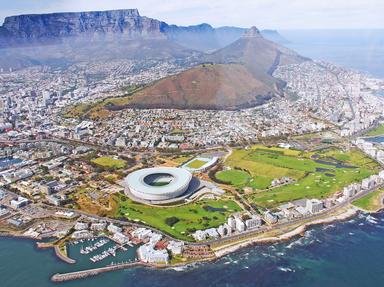Quiz Answer Key and Fun Facts
1. When did the First Boer War take place?
2. The Boer Wars were fought between the British Empire and which two Boer republics?
3. Who were the leaders of the Boer forces during the Second Boer War?
4. Which major European power supported the Boers during the wars?
5. Which technological innovation played a significant role in the Second Boer War?
6. Which treaty ended the Second Boer War?
7. What was the main reason for the Boer Wars?
8. Which side ultimately emerged as the victor in the Second Boer War?
9. Which British military commander gained fame during the Boer Wars?
10. What was the outcome of the First Boer War?
Source: Author
piet
This quiz was reviewed by FunTrivia editor
ponycargirl before going online.
Any errors found in FunTrivia content are routinely corrected through our feedback system.
